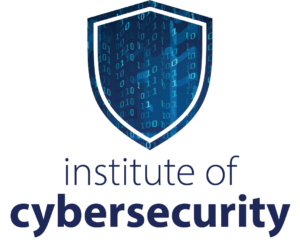
Many individuals are wondering if certifications for cybersecurity are worth the investment in time and money. There are several arguments against certificates because many certificates are now out there. And in terms of popularity, many have gone and gone over the years. Hence, they are still an appealing alternative for the professional or career switcher who wants to enter the entry-level cybersecurity sector. Some of the courses available are for business, financial services, local government, medical and care services, and real estate & property management. Thus, it can cater to different industries that need cybersecurity.
For every team in every organization, training has always been a crucial activity. It helps guarantee that your staff is adequately equipped with the information and skills they need to work efficiently. The good teams need to get the correct sort of training. So you know that your resources are effectively utilized and that the most significant potential outcomes are achieved. So initially, you can hesitate to provide cyber security courses to your complete employees. Unfortunately, the most effective cybersecurity threat has been demonstrated to be a human mistake, and this may come from every aspect of your business. Here are some of the many advantages of cybersecurity training for you.
Protection. The most significant benefit is that cybersecurity solutions in IT security may give your company complete digital protection. It will enable your staff to browse the internet whenever they want to and make sure they are not threatened. Personal information is one of the most valuable products of the digital era. If a virus can get your workers’ or customers’ personal information, they will be able to either sell this information or perhaps take its funds from it.
Strong workforce. You do not want your staff to devise activities in second place. You are less likely to consider reading the strange message when you know what a phishing email looks like. They will send it to the garbage bin instead. Suppose workers have taken cyber security courses, can operate trustingly, and know about the dangers. In that situation, they are less likely to make the sort of human mistake that might cause a disastrous infringement. You will also be less likely to lose time discussing your actions or waiting to ask IT about a simple, fundamental problem. They can deal with daily risks and events individually, armed with the correct knowledge.
Compliance. The authorities stress the need to set security rules and ensure that all users are thoroughly taught and understand their obligations. Even if your firm does not meet compliance criteria, you may wish to expand or bid on some government agreements in the future. All of them demand a specific level of protection of information and need staff to undergo training on required subjects of cybersecurity awareness. All the organization members should realize their critical role in ensuring data protection and privacy regulations are complied with. Laws are subject to strict data protection rules and impose significant fines for individuals who fail to comply.
Training. Occasional and voluntary activity does little to build your organization’s comprehensive cybersecurity culture. Cyber security courses as a background imply that workers do the same. The ideal solution is to provide staff with the knowledge to respond efficiently to cyber risks through constant training that is attractive, interactive, and covers several themes: fishing, radio and ransomware, email compromises, and physical safety. Hackers continually develop their strategies and methods to exploit the most recent weaknesses, therefore improving and innovating your training to be on the front of the attacking organization. Studies reveal the safety hazards of companies investing in cybersecurity awareness training are decreased by 70%. Human beings and technology must work together to recognize cyber dangers and respond. Social engineering, spear-phishing, and ransomware assaults are security concerns necessary for enterprises’ safety.
Security. Many firms have swiftly gone from a typical personal office to an almost entirely remote employee throughout the last several months. Many businesses have been unaware of the significant change because employees had worked half-time or more remotely before the outbreak. Hackers are opportunistic and use this distant shift to expose unwary and vulnerable devices. Attackers exploit the weaknesses of suspicious staff in the public domain. People still work home and handle external problems, and hackers will continue to harness these weaknesses and jeopardize company networks.





Recent Comments